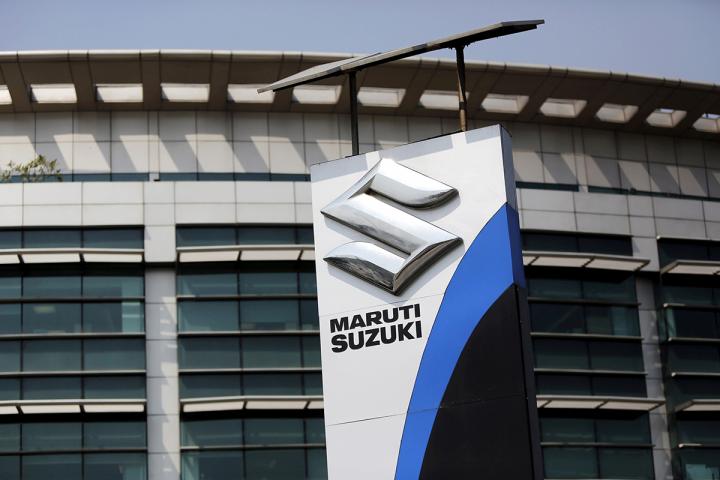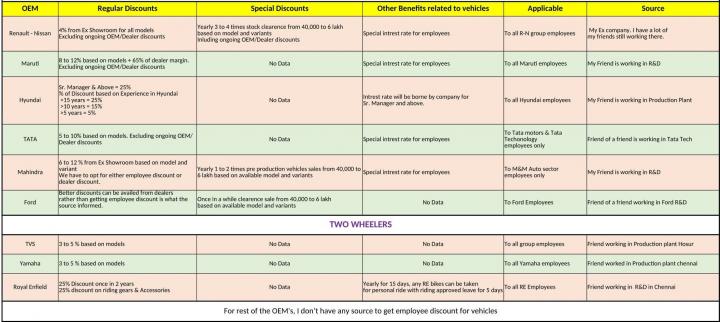News
Effects of EV transition on jobs in the auto industry
I have checked out electric vehicle factories like Ather & Ola. They don't need a lot of employees to put together an EV as compared to the cumbersome assembly of an ICE car/bike.
BHPian svsantosh recently shared this with other enthusiasts.
I want this thread to discuss an important human-centric topic of Jobs that will be impacted if we move to an EV-centric industry. I feel the below jobs will be culled or scaled down forever and can change the course of the job industry forever.
Just like the steam engines died (trains, buses, cars, home heating, etc), Carpentry, pottery hand weaving and so many other jobs have died or been curtailed severely in the last century, and these jobs also will be phased out. Do feel free to add or debate what else will be the impact.
Drivetrain
100s of engine parts sub-contracted to vendors assembled at engine maker - Vs - a simpler motor driven by tech and assembled in-house. I estimate it would need 50% fewer people overall to make a motor (1 casing, rotor, winding and gears) instead of a complicated engine. Same case applicable to gearboxes - electric motors can eliminate the need for a complicated transmission, so many jobs are in question here.
Starter motor/Alternator
There are some Giant employer names in India that are well-known starter and alternator manufacturers, TVS is one, and BOSCH is another, what about those 1000s of jobs there?
Suspension/Brakes/HVAC
In the current EV Scenario, these industries look safe but there may be advancements made. Regenerative braking can eliminate the need for better brakes someday so watch out. Thankfully with a warmer earth, HVAC is still needed and EVs do need some tech to cool down their internals.
Radiator/heat exchange
There is a sure need for a radiator concept in an EV to keep the battery and motor cool but I am not sure if any jobs will be lost.
Spares/Ancillary units/Engine oil/lubricants/filters/Mechanics
This will be a significant sector that will see millions of job losses, there are 100s of lubricant brands in the world, OEM and fake spare industries, 1st grade copy and fake part manufacturers who somehow provide jobs and run the economy, those will be at stake. Air filters, oil filters, engine spares, clutch replacements, etc all gone forever. All after-sales service centers around the world - organized and unorganized, what will happen to them?
Gujri/Scrap/recylcers
Every major town and every city has a suburb with 100s of streets and 1 or 2 highways full of used spares - engines, gearboxes, body parts like hood, boot, seats, etc - what will happen to them?
After-market tuners/Performance Spares/Accessories
Even a Swift can be modded with a louder FFE exhaust and a K&N air filter, what about those industries? Audio refitters, there are various jobs related to both manufacturing of a Pioneer or Sony or Alpine HU and a Sub, Amp, their related wiring etc - I don't think a Tesla or a BYD (for that matter even today's cars don't need an AFM audio anymore) will need these industries.
I can imagine a Tesla having a 10,000 Rs seat cover done in JC road safely covering the airbags but still there are some jobs to surely vanish in this industry. A product as simple as a Pom-Pom Bosch horn cannot be added to an EV without facing major warranty issues. Minda, Roots, Super - there are so many companies making such a simple 1st-mod-on-a-car in India - louder horns.
Additives/Non OEM performance add ons
Liqui moly, Bardhal, 3M, and 1000s more companies have additives for fuel and oil, what about them?
Bearings
Surely companies like SKF/FAG/Techspin will have lesser business if engines and gearboxes are eliminated, they are giants in the job sector. There is no need for a journal bearing surely in EV I hope.
Casting/Foundries
Yes, an EV drive train still needs a cast outer block and a forged shaft or a few but there are far fewer cast/forged parts inside a motor compared to an ICE engine.
The Factory
I have checked out EV factories like Ather or Ola (being a native of Hosur, TN) they really don't need a lot of employees to put together an EV product as compared to the cumbersome assembly of an ICE car/bike. Yes, there are jobs created but it takes far fewer people to assemble an EV compared to a conventional car or bike.
The Battery
I really do not have an estimate of how many jobs are created in the manufacture of EV batteries, can anyone discuss that topic? From mining to logistics to processing and assembly of a Battery Pack.
Oil/Petroleum/Refining/Distribution/Pumps
This is the hottest topic of all, can anyone even begin to estimate the number of jobs in the oil industry, it is simply massive and they make or break nations, geo-politics, and differentiate developed or conflict nations. From oil exploration to drilling and mining to shipping and storage to refining and distribution to petrol pumps - it is simply mind-boggling. I cannot understand how EVs are going to replace this industry and where are humans going to find alternative energy to replace oil. Unless we find a Lithium deposit below earth similar to the Middle-East oil story from the 1970s - hoping the volume of Lithium deposits is the size of 3-4 states combined in India - I simply do not see how a 5 trillion $ industry can be closed down in 5-10 years. Unless someone invents a nuclear-powered car that can run on a spoonful of U235 for 25 years at a stretch…
Here's what BHPian SmartCat had to say about the matter:
There will always be a balance between sales of ICE & electric vehicles. From an economic point of view, if demand for EVs is such that demand for oil starts trending downwards, then the price of oil will fall too. Petrol/diesel prices slowly trending downwards from Rs. 100 per litre to Rs. 20 per litre. What is likely to happen to ICE vehicle demand then?
But hypothetically, let's assume that we have widespread adoption of EVs:
Jobs will be lost in some industries and jobs will be gained in others. Since the process of transport electrification is likely to be slow, there will be enough time for the job market to adjust. Remember that charging infrastructure needs to be setup all over the country in public places and also at individual homes if we are talking about serious electrification of transport in India. That should make up for any job deficit in assembly or component manufacturing.
Even at the macro level, job losses in the oil industry should be covered by job gains in lithium mining or power generation or R&D.
Known lithium reserves are low only because people have recently started looking for it. Lithium is not exactly rare like Gold. Also, lithium can be recycled or an alternative to lithium can be 'discovered' over the course of time.
Here's what BHPian sukarsan had to say about the matter:
Quite often there is a tendency to think EVs will replace ICE. There will always be a dynamic equilibrium. Today the market is split between Petrol/Diesel/CNG/Electric. Flex fuel and H2 will be a part of this mix in the coming years.
Coming to pass car industry, I guess the current split for new car sales is ballpark 40(P)/30(D)/20(CNG)/10(EV) (best guess in my experience). This (90% ICE and 10% EV split) will eventually be a different ratio, due to market forces and ICE will always have a lead.
In conclusion, for ICE, growth will taper down gradually and I don't expect any new investment or recruitment into the ICE ecosystem. There will be job losses as such. This however will be limited to the pass car market. It will be ICE as usual for trucks, tractors, gensets and allied industries.
However, there are countries which have made a pledge for 100% electrification. Based on these pledges, these companies started negotiating with their unions and have been preparing for fewer people employed in assembly lines for years now. (Mainly German companies).
In my personal opinion, I think this is a strategic move. The companies will have the leverage over the unions and these targets are always pushed forward as per the convenience of the automakers.
Side Note: The phrase 'Dynamic Equilibrium' was used by my colleague for the blending of ethanol in Petrol in Brazil. The blend ratio is based on many things like demand for sugar, petrol, election cycle, global politics, war etc. I found the term to be very apt and have found it quite useful in explaining past and future trends to my friends and colleagues.
Here's what BHPian Ravi Parwan had to say about the matter:
One of the prime reasons you see so many fewer people in an EV factory compared to an ICE factory is that with time most processes move towards automation and reduction of manual effort. Compare today's newspaper printers to their state 20-30 years ago. Then you go to a neighborhood printer and you find the same tech being used where a person manually snatches/replaces the paper between every pass of the machine.
My point is that for many of these industry players, the cost of modernization is not justified for the scale of operations. Hence what we see as representative of the ICE industry is maybe 40-50-year-old technology while new capacity coming up will mostly be using maybe 10-20-year-old technology. This in my opinion is why we feel that the EV industry employs fewer people.
Going forward, I agree that there will be an equilibrium in place. Jobs will be reduced in some industries while being generated in other industries.
Check out BHPian comments for more insights and information.
News
Maruti employees under scanner for alleged financial misconduct
Maruti Suzuki has launched an inquiry on the basis of a complaint filed by a whistleblower.
Some executives from Maruti Suzuki’s purchase department are under the scanner following allegations of financial misconduct.
According to media reports, Maruti Suzuki has launched an inquiry on the basis of a complaint filed by a whistleblower. It is alleged that some executives provided benefits worth crores to some vendors and supply partners by sourcing parts from them at an inflated cost.
Maruti Suzuki has hired the accounting firm KPMG to conduct a detailed forensic audit. Reports also suggest that laptops and mobile phones of those under scanner have been confiscated to look for activity records that could assist in the probe.
Maruti Suzuki has neither confirmed nor denied these reports. KPMG also did not comment on the matter.
Source: ET Auto
News
Car discounts provided by the OEMs to their employees
Thanks to the Team-BHP fan (he prefers to remain anonymous) who sent these images in. Heartfelt gratitude for sharing it with other enthusiasts via this page!
The Team-BHP fan works in the R&D department of a carmaker and has sourced information from his friends who work in different OEMs.
The list includes regular discounts, special discounts as well as other benefits to employees offered by various carmakers like Renault-Nissan, Maruti, Hyundai, Tata, Mahindra, and Ford. Two-wheeler manufacturers like TVS, Yamaha, and Royal Enfield have also been listed.
Maruti is offering 8-12% discount based on the car model, while Tata is offering 5-10% based on the model and Mahindra is offering 6-12% based on the model and variant. Mahindra employees have to choose between employee discount and dealer discount. Renault-Nissan is offering 4% discount on ex-showroom price for all models and Hyundai's discount varies according to the number of years of experience with the company.
TVS and Yamaha are offering 3-5% discount depending on the model and Royal Enfield offers 25% discount once in two years and additional 25% discount on riding gear and accessories.
News
Nissan to lay off 1,700 employees in India
According to a media report, Nissan is laying off 1,700 employees in India.
Reports suggest that Nissan is cutting around 12,500 jobs worldwide over the next 3 years. These include 6,400 employees who have already been asked to leave.
The number of job cuts in India accounts for 13.5% of all the people laid off by Nissan globally. Besides India, Nissan is also laying off 1,420 employees in the US, around 1,000 in Mexico, 830 in Indonesia and 880 in Japan.
It has been reported that the lay off process had begun in India almost 6 months back. Nissan had announced an Employee Voluntary Separation Scheme in 2018.
Nissan has said that the latest layoffs are part of its initiative to improve efficiency.
Source: Economic Times
News
M&M's new scheme for bank employees
Earlier this month, Hyundai introduced a scheme exclusively for government employees (read more) and this time around Mahindra has come up with a new scheme to attract bank employees.
The scheme is known as Bankers' Bonanza, and as per this, bank employees across the country will be entitled to an additional discount of upto Rs.25,000 on purchase of select personal range of Mahindra four wheelers.
This scheme shall be effective for two months, ending on August 31, 2014 and bank employees can avail the benefit of this scheme on purchase of a Mahindra vehicle across all Mahindra dealerships in India.








